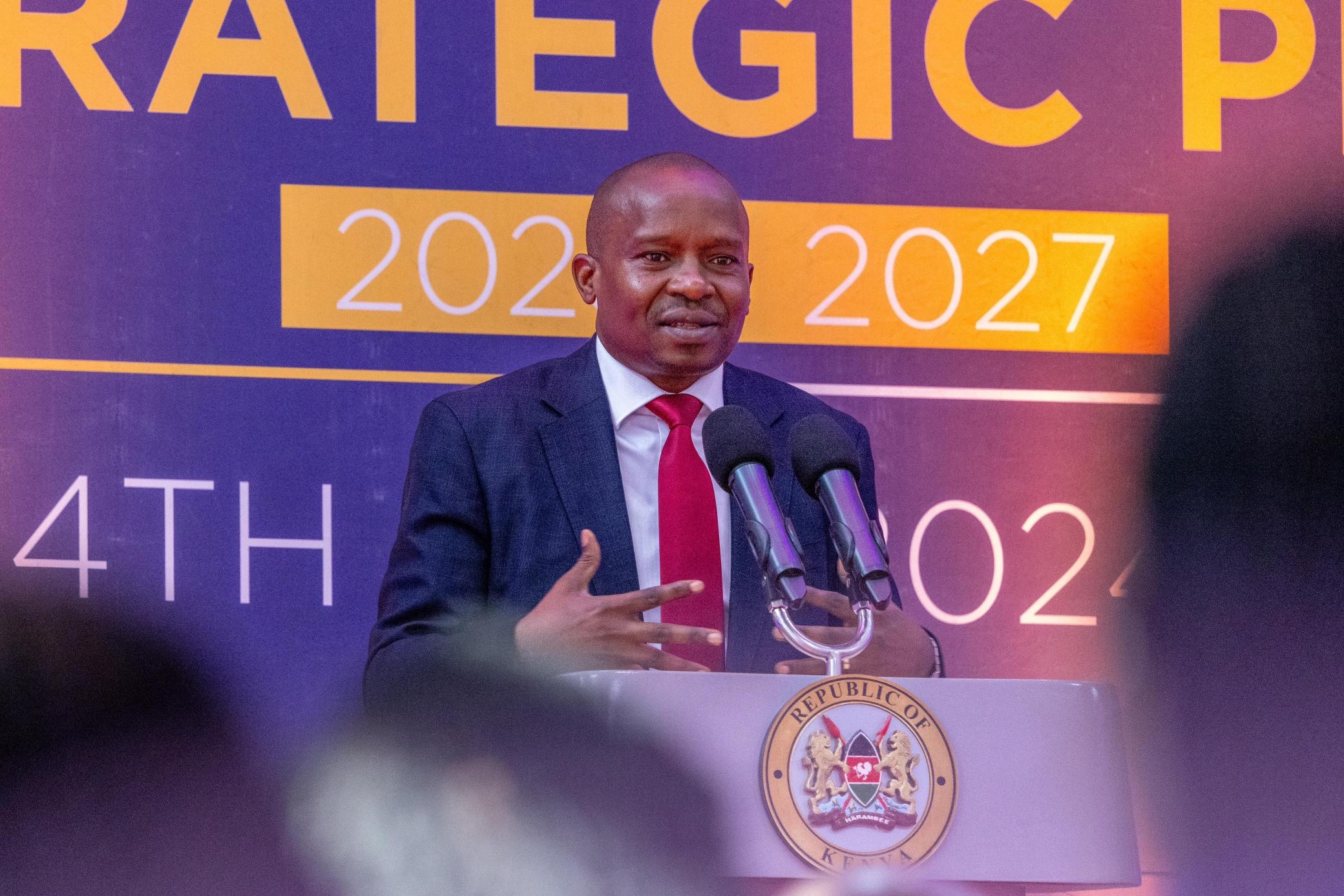

The Office of the Director of Public Prosecutions (ODPP) on Wednesday officially launched its Strategic Plan for 2023-2027.
This plan, which has been guiding the ODPP for the past year, will continue to direct its operations for the next three years.
In addition to outlining the plan, the ODPP also highlighted the challenges it faced during the last financial year.
On the subject of independence and integrity, the DPP noted there had been inadequate sensitisation on the Code of Conduct and Ethics for staff, the lack of a legal framework to implement the diversion policy, and the absence of a clear monitoring and evaluation framework.
Regarding lifelong learning, the ODPP faces an inadequate legal and policy framework for the operationalization of the Prosecution Training Institute (PTI).
There are also challenges related to inadequate resources and funding, as well as insufficient human resource capacity for planned activities.
Furthermore, there has been inadequate budget allocation for the infrastructural development of the PTI.
Time and financial constraints have further complicated the office's operations.
In reshaping prosecutions, the ODPP has been hindered by insufficient sensitization of staff on the planned activities of the Excellence Charter, as well as inadequate human resource capacity to carry out these activities.
Gaps in the ODPP Act, CAP 6B, have also impeded the implementation of key programs and activities.
On the issue of leadership, Ingonga highlighted several difficulties, including failure to prioritize planned activities, insufficient skills to implement some initiatives, and the under-utilization of staff and misapplication of their skills.
In terms of organisational effectiveness, the ODPP faces a lack of sufficient ICT infrastructure, bureaucratic delays, and insufficient financial and human resources to achieve some of its planned activities.
In the context of inter-agency networks, the ODPP faces challenges such as the under-utilisation of staff with the necessary skills, financial constraints, overlapping agency mandates, and inadequate implementation of the stakeholder engagement policy.
Milestones Achieved
Despite these challenges, the ODPP has made significant progress and achieved several milestones. Among the key achievements is the development and implementation of the Guidelines on Decision to Charge.
The office also created and implemented policies for alternatives to prosecution, such as plea bargaining and diversion, and reviewed its Code of Conduct and Ethics.
Under lifelong learning, the ODPP has made strides in developing the PTI’s infrastructure.
This includes the creation of a one-year diploma curriculum, the establishment of a PTI library and resource centre, and the operationalization of the PTI Research Division.
In reshaping prosecution, the office developed guidelines for the prosecution of child-related matters, victim and witness facilitation, prosecution-guided investigations, and the appointment of public prosecutors.
It also created inter-agency guidelines on cooperation and collaboration in the investigation and prosecution of terrorism and terrorism financing.
In leadership, the ODPP launched a leadership and development program, developed a succession planning policy, and established an award and recognition policy.
It also introduced a Thought Leadership policy.
Additionally, the ODPP has decentralised prosecution services, operationalized the IQA department, and automated many of its processes and procedures.
These improvements include the implementation of Uadilifu case management, central case intake, a performance appraisal system, the development of an e-learning platform, and the creation of the Malalamishi complaints and case review system.
It has also introduced crime mapping for monitoring election offences












